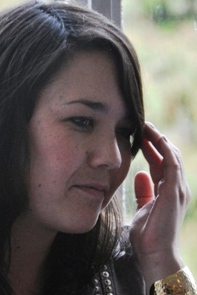|
| The Principles of Skilful EFTOur simple statement of clean, quality EFT |
What is Skilful EFT?EFT is for everybody. Quite often any sort of tapping gets amazing results and for many people that is all they need. There is no problem with sloppy tapping. However, those who offer a service to the public need to be skilled and experienced. "I am happy being a sloppy cook 'Tapping' is the generic term for talking whist tapping with finger tips on selected acupressure points. EFT or Emotional Freedom Techniques is the set of tapping techniques originated by EFT founder Gary Craig. "EFT is Tapping but Over the last two decades since Gary Craig first introduced EFT, differing interpretations, misinterpretations, evolutions and innovations have proliferated. Some of these are congruent with the founding work, some not. Standards of training and practice have varied widely. Before we share our understanding of good, clean, congruent and skilful EFT, let's be clear, the EFT Guild is in no way 'official' and is neither recognised nor approved by Gary Craig. Principles of Skilful EFT
Teaching, coaching and evaluation within the Guild should be in accordance with the EFT Guild principles of skilful EFT. Every craft has an art of skilful delivery such that, with experience, each of us evolves our own personal artistry around certain principles which are core.
The Tapping Does the WorkThere are two parts to EFT: the words and the tapping. If EFT is emotional WD40: then the words are the straw that directs the lubricant to the target, the tapping is the lubricant in the can. The tapping does the work. The words uncover the target through curious and caring questions and focus the tapping effect. The tapping is the change agent. The Words are Not the ChangeLeading, manipulation, giving advice, mixing tapping with hypnosis or NLP techniques that use direct or indirect suggestion to verbally manipulate subjective experience is not clean EFT. It may be valid and effective to add tapping to NLP techniques but if it uses manipulation or suggestion then it is not EFT. When we tell a person what to think or feel, or put our own words in their mouth, we are directing or leading. An EFT helper walks calmly alongside. Like a guide dog, not setting an agenda, not pulling a person into change. Where the Words Come FromThe Words come from the client, from their subjective experience. The role of a helper is to ask the questions which reveal the structure of the problem and thus the person’s own words which come from the layers and aspects of the problem. The process is to ask curious questions, possibly directed by intuition, and to give a person back their own words through the EFT process letting the tapping do the work. The helper does not put words in the person’s mouth or use leading statements. The skill of EFT is a verbal skill of asking good questions. The helper manages the process; the person manages the content. Funneling DownEFT is a tool for the transformation of subjective experience. Awareness of a problem may start broad and vague and then get specific and detailed. Simple, curious questions elicit the aspects and sensory detail of underlying events and memories: as we tap we clear these layer by layer. This general to specific funneling down may happen in one session, or over many and goes at the pace of the client. Tapping with global statements of the whole problem can be calming but has a danger of overwhelm through opening related events and not clearing the sensory details. We funnel down gently through a repeating process of: question, measure, tap, test. False TruthsWe come into this world clear and pure: then life throws it at us. From each experience of threat, shock or stress we draw conclusions about ourselves, about others and about life itself. Time passes, we grow and our circumstances change but these early conclusions persist and guide our actions. They become false truths which create further stress, blocks and self-sabotage such as: "I always fail" or "people can't be trusted" or "life isn't fair". The skilful craft of EFT is in the kind and curious questions that, together with the loosening effect of tapping, uncover these false truths and clear the shocks and stresses that gave rise to them. Thus we are freed from the past and able to set a direction into the future. Test, Test, TestTesting is the key to good work. Testing tells us how much progress we have made and what is still to do. Testing is an evolving and creative process: part of the connection and the dance between two people that is the magic of EFT.
Affirmation and IntentionPositive language feels good and skilled use can be a beneficial part of the process. It is not however, a substitute for skilful clearing of negative patterns. Ask a nurse what happens if you dress a wound without cleaning it first and they will tell you that infection is likely. Ask what happens when you clean thoroughly and they will tell you that it heals by itself. EFT is a process for cleaning an emotional wound. Affirmation and intention can be used to support someone when the cleaning process would be too painful; to rehabilitate movement when healing is progressing and to set a chosen direction once blocks to forward movement are released. Present, Past, FutureA skilful EFT session starts with the subjective experience of the present problem, issue or behviour and gets the tapping into the details of the aspects or triggers. As we tap and ask curious questions past events, false truths and memories emerge. We tap to clear the sensory details testing as we go. Once the grip of the past is loosened we can use intention and affirmation to set the direction of the future, like programming our inner satnav (GPS). So the process becomes:
The EFT Process and the TechniquesEFT is a set of verbal techniques for applying the process of tapping. The techniques can be understood in categories of their function which together form a process of Four Cs:
These techniques and how to use them are taught in the EFT Training courses developed by Gwyneth Moss for the EFT Guild. In practitioner evaluation these are the techniques and process that successful practitioners demonstrate. We encourage you to study Gary Craig's EFT tutorial Now read our page Good Behaviour |
|









 '
'